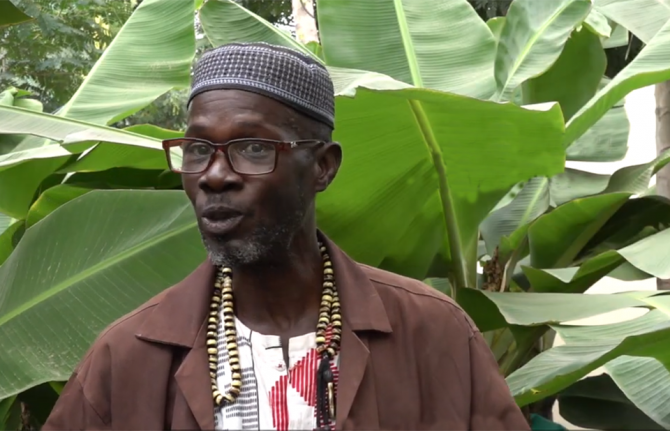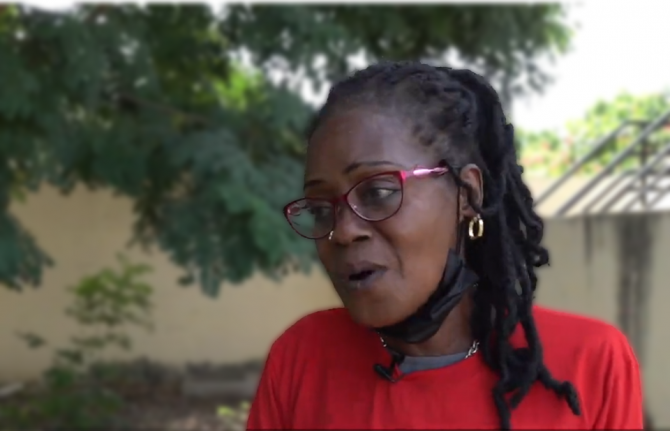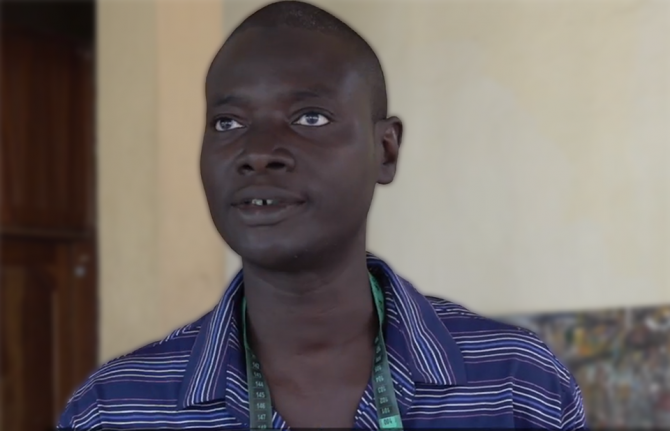



Feature Story
Leave no one behind and that includes people who use drugs
04 May 2023
04 May 2023 04 May 2023Daouda Diouf comes daily to the Fann Hospital compound daily. He is one of 250 people enrolled in CEPIAD*’s opioid substitution therapy programme (OST). OST is a globally recognized intervention to reduce injecting behaviours that put people who inject drugs at risk of contracting HIV and other blood-borne diseases, such as viral hepatitis.
“I am here to take my treatment and I am also a tailor, so I teach a few other users of drugs how to sew,” Mr Diouf said, cutting fabric in his makeshift outdoor workshop. Keeping occupied and selling his wares has helped him stay healthy for the last seven years.
Another enrollee agrees. He has found a passion for gardening and now oversees other patients at the centre’s green area.
For El Hadj Diallo, planting seeds, pruning trees is like a type of therapy. “When we are here, we forget our problems, I am happy doing it and it’s therapeutic for me,” he said.
Their other therapy consists of a daily dose of methadone. Mangane Boutha, the centre’s pharmacist carefully measures and distributes each dose in his office.
“Methadone is a medicine that acts as a heroin substitute, in our case it’s a syrup that is dosed in 10mg/ml portions with doses varying from patient to patient,” he explained.
Founded in 2014, CEPIAD has cared for more than one thousand people and is one of the first harm reduction centres in West Africa. Aside from opioid substitution, clean needle exchange and psychosocial support, they also offer health care.
“CEPIAD has become a testing and diagnostics center for HIV, and also tuberculosis as well as hepatitis and we distribute condoms,” said Dr Idrissa Ba, who coordinates the centre.
In Senegal, HIV prevalence among people who inject drugs is 9%, well above the 0.5% among the general population. Globally, due to stigma and criminalization, people who inject drugs face a 35 times higher risk of acquiring HIV than people who do not inject drugs.
Three-quarters of patients here are men but CEPIAD has been working hard to reach more women. Among people who use drugs, women are more likely to live with HIV, according to Dr Ba.
Mariama Ba Thiam, who formerly used drugs, lived for years on the streets. She is now a peer educator in Dakar. “I go out into the community and visit colleagues to raise awareness about getting off drugs and also how to reduce health risks so I refer them to CEPIAD and they can do like me, stop drugs,” she said.
Her plea: Get more funds to get more women and young people to come to the centre.
In Senegal, whilst drug use is a criminal offense, CEPIAD’s work has the support of the government, the United Nations as well as other partners.
On international Harm Reduction day, UNAIDS firmly believes that if we are to end AIDS by 2030, we can’t leave anyone behind. And that includes people who use drugs.
*The Centre de Prise en Charge Intégrée des Addictions de Dakar (CEPIAD)



